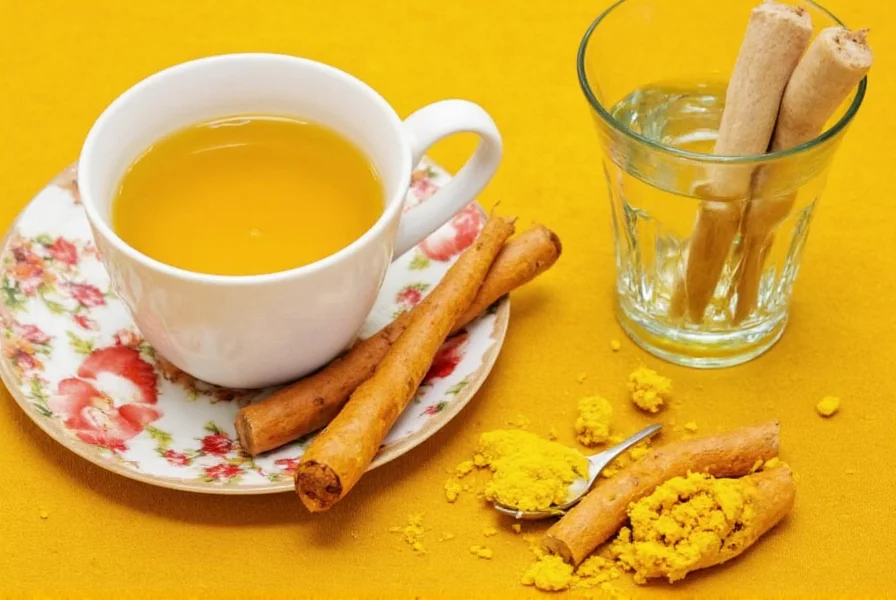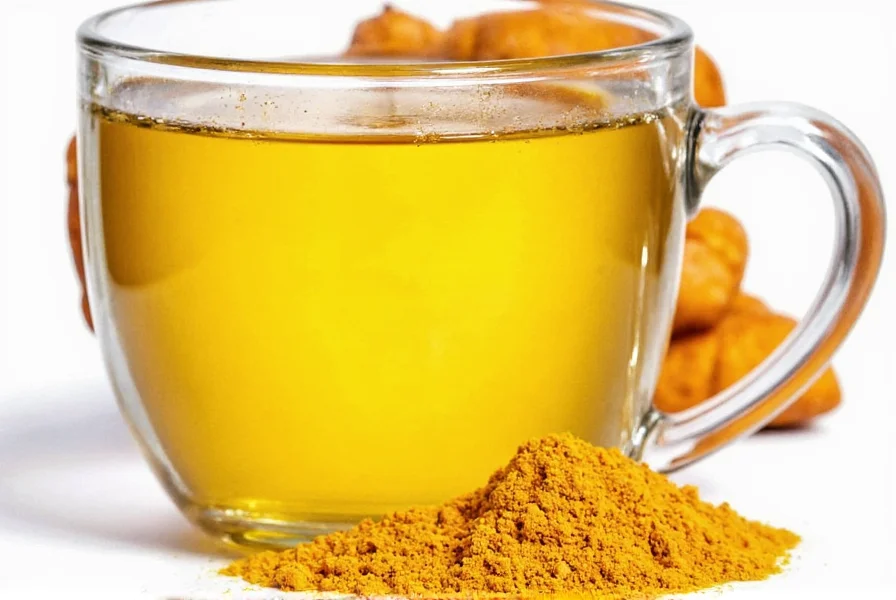Creating the perfect cup of turmeric tea requires understanding both the foundational technique and creative variations that suit different tastes and wellness goals. This vibrant golden beverage has gained global popularity for its potential health properties and soothing qualities, but its roots trace back thousands of years in Ayurvedic and traditional Chinese medicine practices.
The Essential Components of Quality Turmeric Tea
While the basic easy turmeric tea recipe for beginners requires minimal ingredients, understanding each component's role elevates your brewing experience. Turmeric contains curcumin, the active compound responsible for its distinctive color and potential health benefits, though curcumin has low bioavailability on its own. Combining turmeric with black pepper (containing piperine) can increase absorption by up to 2,000%, according to research published in Planta Medica.

Four Tested Turmeric Tea Recipes for Home Brewing
These homemade turmeric ginger tea benefits extend beyond flavor—the combination creates a synergistic effect with complementary health properties. Each recipe yields one serving and can be easily doubled.
| Recipe Name | Key Ingredients | Brewing Time | Special Benefits |
|---|---|---|---|
| Classic Golden Milk Tea | 1 tsp turmeric, 1 cup milk (dairy or plant-based), pinch black pepper, honey | 8-10 minutes | Improved curcumin absorption, soothing before bed |
| Immunity-Boosting Blend | 1 tsp turmeric, 1 tsp ginger, 1 tbsp lemon juice, honey, pinch cinnamon | 12 minutes | Antioxidant-rich, ideal during cold season |
| Simple Detox Tea | 1 tsp turmeric, 1 tsp lemon juice, 1 tsp honey, hot water | 5 minutes | Quick preparation, morning digestive aid |
| Spiced Turmeric Chai | 1 tsp turmeric, black tea bag, 1 cinnamon stick, 3 cardamom pods, milk | 15 minutes | Energy boost with warming spices |
Step-by-Step Guide to Perfect Turmeric Tea
Follow these professional brewing techniques for optimal flavor and potential benefits. The best time to drink turmeric tea varies by your wellness goals—morning for digestion, afternoon for energy, or evening for relaxation.
Basic Brewing Method
- Add 2 cups of water to a small saucepan and bring to a gentle simmer (not boiling)
- Stir in 1 teaspoon of high-quality turmeric powder (or 1-inch freshly grated turmeric root)
- Add complementary ingredients like 1/4 teaspoon black pepper to enhance absorption
- Simmer uncovered for 8-10 minutes to extract maximum compounds
- Strain through a fine mesh sieve to remove sediment
- Add 1 tablespoon lemon juice and 1 teaspoon honey or maple syrup
- Stir well and serve immediately
Maximizing Health Benefits in Your Turmeric Tea
Understanding how to optimize your anti-inflammatory turmeric tea recipe makes a significant difference in potential benefits. Research suggests consuming turmeric with healthy fats (like coconut milk) and black pepper substantially increases curcumin bioavailability. A study in the Journal of Medicinal Food found that combining turmeric with piperine from black pepper increased curcumin absorption by 2,000%.
For those seeking the how to make turmeric tea with honey for sore throats, consider adding raw honey after cooling the tea slightly (below 140°F/60°C) to preserve its beneficial enzymes. The ideal temperature for drinking turmeric tea ranges between 140-160°F (60-71°C) to avoid scalding while preserving active compounds.

Potential Considerations and Safety
While turmeric tea offers potential benefits, certain individuals should exercise caution. Those taking blood thinners should consult their healthcare provider before regular consumption, as turmeric may enhance anticoagulant effects. People with gallbladder issues should also seek medical advice, as turmeric might stimulate bile production.
The recommended daily intake of curcumin ranges from 500-2,000 mg, which translates to approximately 1-3 cups of properly brewed turmeric tea daily. Consuming excessive amounts (more than 8 grams of curcumin daily) may cause digestive discomfort in some individuals.
Storage and Preparation Tips
For convenient daily use, prepare a turmeric concentrate by simmering 1/4 cup turmeric powder in 2 cups water for 15 minutes. Store this golden paste in the refrigerator for up to two weeks. When ready to drink, mix 1-2 teaspoons of concentrate with hot water or milk. This method ensures consistent potency and saves preparation time.
Frequently Asked Questions
How much turmeric should I use per cup of tea?
Use 1/2 to 1 teaspoon of turmeric powder (or 1-inch fresh turmeric root) per cup of water. Start with smaller amounts and adjust to your taste preference, as turmeric has a strong, earthy flavor that can become bitter in excess.
Can I drink turmeric tea every day?
Yes, most people can safely enjoy 1-3 cups of turmeric tea daily. However, those with specific health conditions or taking certain medications should consult their healthcare provider first. Long-term excessive consumption may cause digestive issues in sensitive individuals.
Why does my turmeric tea stain my mug?
Turmeric contains curcumin, a powerful natural pigment that easily stains surfaces. To prevent staining, rinse your mug immediately after use with warm soapy water. For existing stains, create a paste of baking soda and water, apply it to the stained area, let sit for 15 minutes, then scrub gently.
What's the difference between using fresh turmeric and powder?
Fresh turmeric root typically contains higher curcumin levels (about 3-5%) compared to dried powder (2-5%, but often less due to processing). Fresh turmeric offers a brighter, more complex flavor but requires grating. Powder provides convenience and consistent measurement but may lose potency over time if not stored properly.
When is the best time to drink turmeric tea for maximum benefits?
Morning consumption supports digestion and provides an anti-inflammatory boost to start your day. Evening consumption (especially golden milk versions) promotes relaxation and better sleep. For targeted benefits, drink before meals to support digestion or after workouts to potentially reduce muscle soreness.











 浙公网安备
33010002000092号
浙公网安备
33010002000092号 浙B2-20120091-4
浙B2-20120091-4